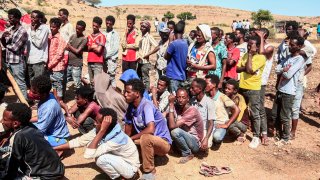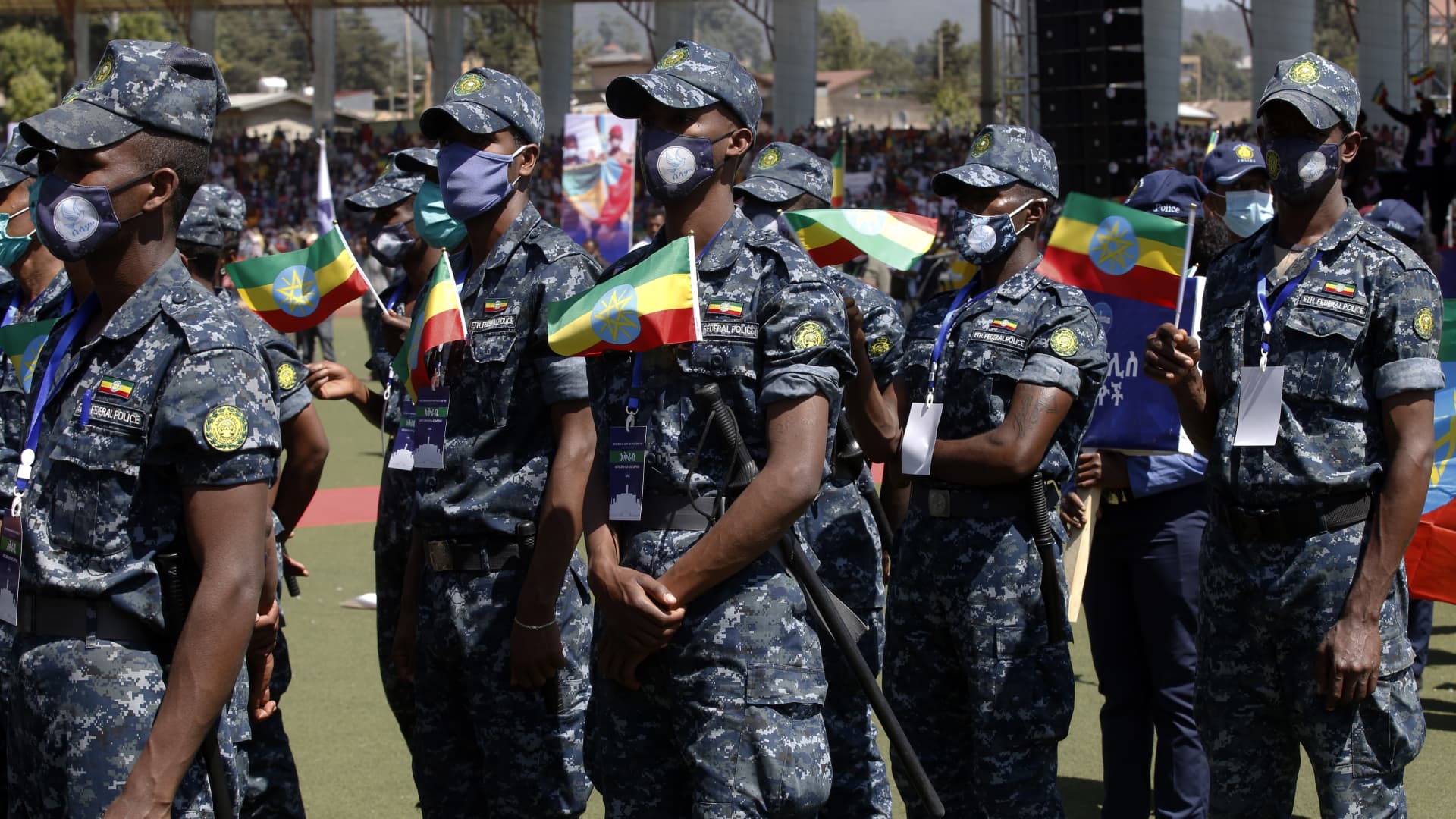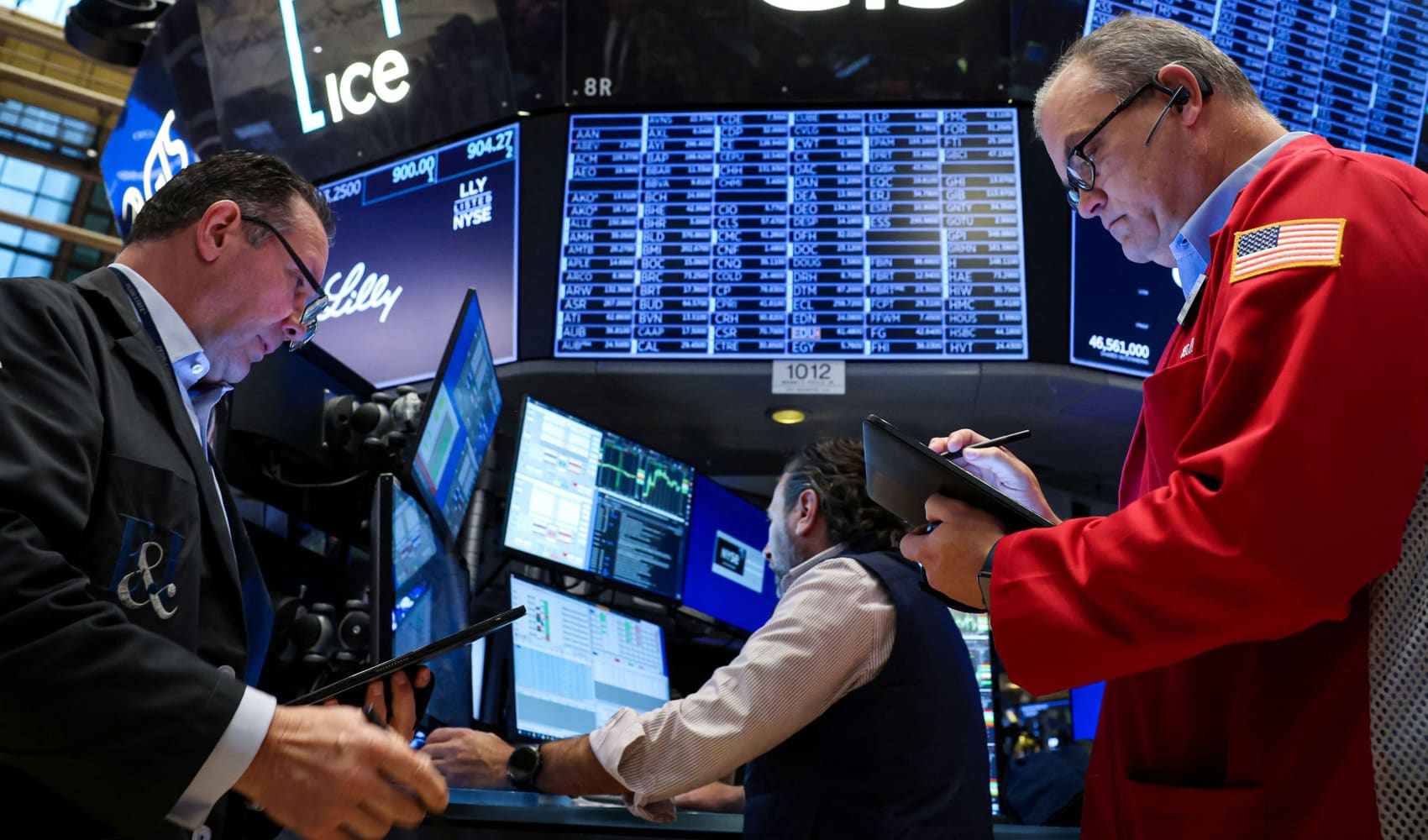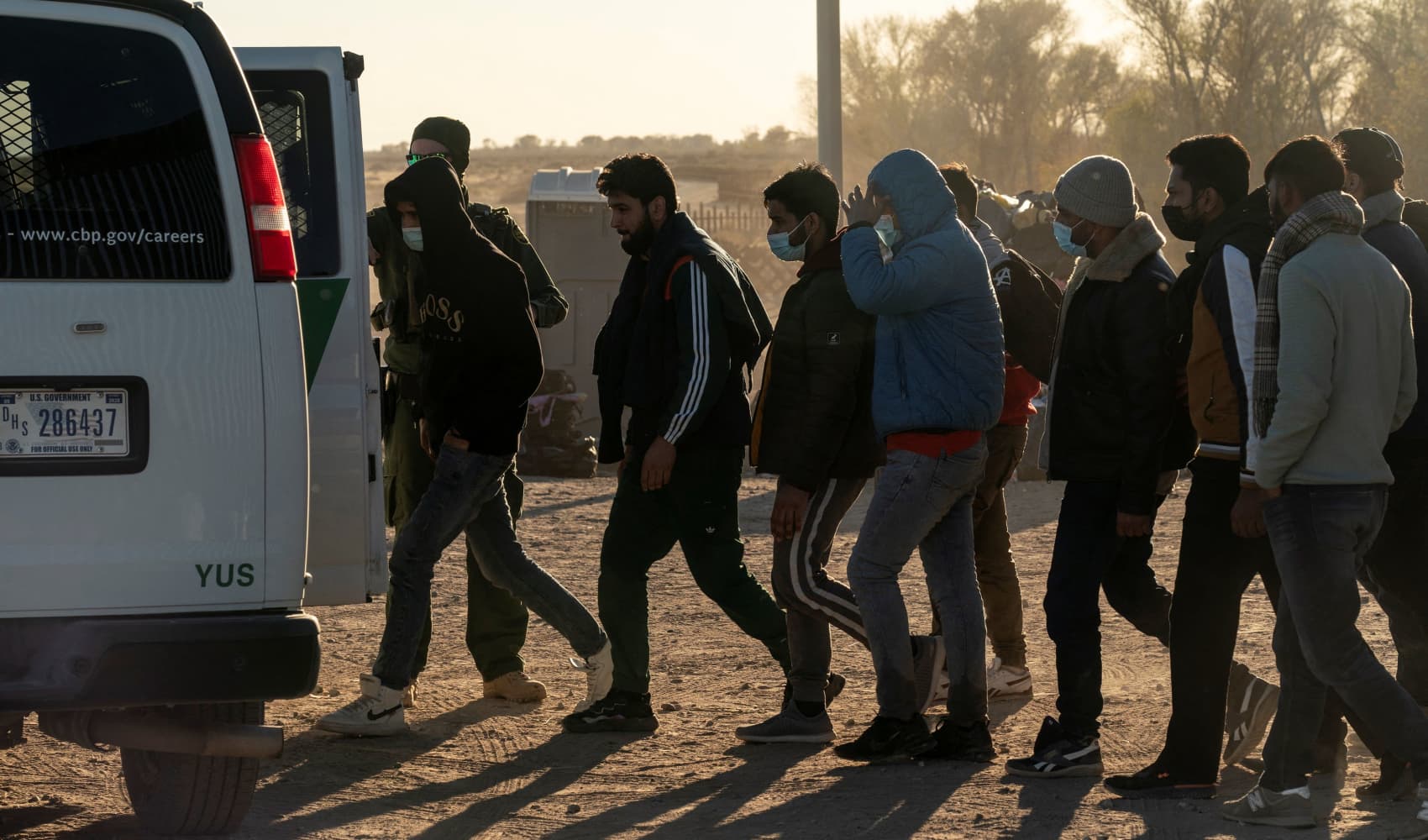
- According to a recent UN update, more than 2.2 million people have been displaced and allegations of human rights abuses by security forces have drawn international condemnation.
- On Wednesday, U.S. Secretary of State Antony Blinken called for an international investigation into the fighting between the region's former ruling Tigray People's Liberation Front (TPLF) and the Ethiopian National Defence Force (ENDF) and its allies.
- The continuation of conflict presents a further roadblock to an economy ravaged by the Covid-19 pandemic. The IMF has forecast 0% GDP growth in real terms in 2021.
Four months after the Ethiopian government declared victory, conflict continues to escalate in the northwestern state of Tigray, hitting the country's economic recovery prospects and diplomatic ties.
On Wednesday, U.S. Secretary of State Antony Blinken called for an international investigation into the fighting between the region's former ruling Tigray People's Liberation Front (TPLF) and the Ethiopian National Defence Force (ENDF) and its allies.
Meanwhile Berhane Kidanemariam, the deputy chief of mission at the Ethiopian embassy in Washington, resigned in protest against what he called the "genocidal war." He accused Prime Minister Abiy Ahmed, winner of the 2019 Nobel Peace Prize, of leading Ethiopia down a "dark path toward destruction and disintegration."
Get top local stories in Philly delivered to you every morning. Sign up for NBC Philadelphia's News Headlines newsletter.
According to a recent UN update, more than 2.2 million people have been displaced and allegations of human rights abuses by security forces have drawn international condemnation. The European Union, meanwhile, has suspended $109 million in aid to the country, and the U.S. has withheld $130 million in budgetary support until humanitarian access to the Tigray region is granted.
Abiy told the African Union council on Tuesday that the Ethiopian government had taken "concrete steps to address alleged human rights abuses" and vowed to collaborate with UN agencies.
Economic headwinds
Money Report
The continuation of conflict presents a further roadblock to an economy ravaged by the Covid-19 pandemic. The IMF has forecast 0% GDP growth in real terms in 2021.
Ethiopia's Ministry of Trade and Industry estimates that the closure of factories and mining sites in Tigray since early November is costing the Ethiopian economy around $20 million per month, while communications blackouts continue to obscure the scale of the damage to industry in the state itself.
However, Abiy appears to favor a military solution to the conflict, despite mounting fears that it could spill out beyond the region.
"The months ahead are unlikely to see any major concessions by Ethiopia's federal government, as the conflict continues to feed ethno-nationalist tensions across other regions of Ethiopia and threatens to erode the country's economic recovery prospects," Robert Besseling, CEO of Pangea-Risk, noted in a report last week, labelling the ongoing conflict a "simmering civil war."

Besseling told CNBC via email Thursday that mounting insecurity posed the greatest threat to Ethiopia's economic recovery and debt affordability. Like a number of sub-Saharan African nations, Ethiopia has borrowed heavily from China. The lack of transparency surrounding these deals could lead to further issues for the country as it seeks to restructure its debt under the G-20 common framework.
Read more about Chinese loan financing in Africa here.
On Wednesday, Moody's placed Ethiopia's B2 credit rating — meaning it's viewed as speculative and high-risk — on review for downgrade. It reflects the ratings agency's concerns about the requirement for Ethiopian authorities to engage with private creditors on equal terms.
Irmgard Erasmus, senior financial economist at NKC African Economics, highlighted that Ethopia's access to financing was deteriorating. "(It) comes as reputational risk has soared (in the aftermath of the Tigray offensive) which curbs budgetary support from international stakeholders."

Besseling suggested that even if Ethiopia successfully restructured its bilateral and multilateral loans, economic disruption and raised security spending would pose longer term threats, but he added that "the prospect of commercial credit restructuring seems unlikely for now."
Fighting in Tigray has prompted several companies to suspend operations in the region, including European and Asian textile, agribusiness, and manufacturing firms. The Pangea-Risk report noted that security-related expenditure had contributed to a "notable deterioration in the fiscal balance and Ethiopia's foreign exchange reserves."
"Bilateral relations are also under strain, as indicated by a recent deterioration in the relationship with Germany, which could use development aid as a lever to push for peace since Ethiopia is a major recipient of German development assistance," Besseling added.
International pressure mounting
Blinken has accused security forces of "ethnic cleansing" in Tigray, citing "very credible" reports of atrocities and human rights abuses. He called on Eritrean forces and troops from the neighboring Ethiopian Amhara region — allies of the Ethiopian National Defence Force — to pull out of the state.
Amhara spokesman Gizachew Muluneh rejected the allegations Thursday, telling AFP that reports of mass displacement and ethnic cleansing were "propaganda."
Eritrea has repeatedly denied any military presence across the border, but Human Rights Watch on Friday accused the country's forces of perpetrating massacres against civilians in the historic town of Axum in the Tigray region, and called for an international inquiry into war crimes and crimes against humanity.
On Feb. 26, the Ethiopian government announced that it would thoroughly investigate events in Axum and expressed "readiness to collaborate with international human rights experts."
One of the TPLF's fugitive leaders, Getachew Reda, took to Twitter on Thursday to seize upon the international spotlight and accuse Abiy's regime of ramping up atrocities in recent weeks.
"Calls by U.S. Secretary of State Antony Blinken for an international investigation, or potential sanctions (that U.S. Senators and the European Commission have floated) are unlikely to have major direct economic consequences," Virag Forizs, Africa economist at Capital Economics, told CNBC on Thursday.
"But investor sentiment could sour, increasing balance of payments strains and heightening default risks."






